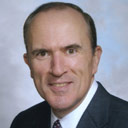Francis J Serbaroli
May 28, 2002 | New York Law Journal
Health LawT he juxtaposition could not be more disconcerting. The media regularly feature stories about important medical breakthroughs and promising new treatments for dreaded diseases. Side-by-side with the positive news are shocking stories about the mistreatment of patients and unnecessary deaths or injuries due to such factors as medication errors, botched surgeries, misdiagnoses and overworked professional staff. In New York and elsewhere, hospitals, health care facilities and physicians have made headlines whe
By Francis J. Serbaroli
9 minute read

September 29, 2008 | New York Law Journal
Health LawFrancis J. Serbaroli, a partner at Cadwalder, Wickersham & Taft, writes that like the expeditions that sought the riches of the fabled lost city of El Dorado, the search continues for a legal way to allow physicians to capture some of the income generated from their referrals of patients to other providers. The latest of these expeditions, a particularly convoluted arrangement involving urologists who refer prostate cancer patients to radiation oncologists, has just been thwarted by the Office of Inspector General of the U.S. Department of Health & Human Services in one of the OIG's periodic Advisory Opinions.
By Francis J. Serbaroli
11 minute read

September 27, 2007 | New York Law Journal
Health LawFrancis J. Serbaroli, a partner in Cadwalader, Wickersham & Taft, writes that many surgical procedures that once required a week or more of hospitalization are now performed in ambulatory surgery centers, which can mean lower inpatient volume and revenues for hospitals. These hospitals have resorted to a variety of tactics to protect their turf, including joint ventures with ASCs. A recent advisory opinion expressed concern with such ventures.
By Francis J. Serbaroli
11 minute read

September 26, 2006 | New York Law Journal
Health LawFrancis J. Serbaroli, a partner at Cadwalader, Wickersham & Taft, writes that it's hurricane season in the not-for-profit hospital sector amidst a continuing storm over the aggressive pricing and debt collection practices used by some not-for-profit hospitals for their uninsured patients.
By Francis J. Serbaroli
14 minute read

July 31, 2008 | New York Law Journal
Health LawFrancis J. Serbaroli, a partner at Cadwalader, Wickersham & Taft, write that for decades, Medicare and Medicaid, as well as many private insurers, have paid the costs of correcting medical mistakes or treating avoidable harm that has come to patients during the course of their hospitalizations, thereby rewarding negligence and undermining efforts to provide the best patient care. These insurers and payment providers are finally calling a halt to payments for these "never events."
By Francis J. Serbaroli
11 minute read

July 29, 2009 | New York Law Journal
Health LawFrancis J. Serbaroli, a shareholder at Greenberg Traurig, discusses "Michelle's Law," enacted last year and to take effect this fall, which prohibits a group health plan from terminating coverage of a dependent child for up to one year when that child takes a medically necessary leave of absence from a postsecondary educational institution and the leave would otherwise result in ineligibility for health coverage.
By Francis J. Serbaroli
9 minute read

May 24, 2011 | New York Law Journal
Antitrust Enforcers Target Hospital ConsolidationsIn his Health Law column, Francis J. Serbaroli, a shareholder in Greenberg Traurig, writes that recent actions demonstrate that the FTC will try to stop hospital mergers even before there is any actual evidence that the merger will significantly lessen competition or result in higher costs. As importantly, the FTC will examine and if necessary force the breakup of hospital systems, no matter when they occurred, if the benefits promised at the time of the merger have not materialized.
By Francis J. Serbaroli
13 minute read
January 27, 2009 | New York Law Journal
Health LawFrancis J. Serbaroli, a shareholder in Greenberg Traurig, writes: While any business bankruptcy can be complicated, the bankruptcy of a health care facility is more so. A hospital is not just another business; it is first and foremost a critically important community resource. In certain localities, a hospital may in fact be the only provider of medical care, serving as both an acute-care facility and as the community's doctor. A hospital is also frequently the largest employer in the area it serves, and its closure could severely harm not just the local health care infrastructure but the local economy.
By Francis J. Serbaroli
12 minute read

November 22, 2005 | New York Law Journal
Health LawFrancis J. Serbaroli, a partner at Cadwalader, Wickersham & Taft, reviews the mandate and structure of the "Commission on Health Care Facilities in the 21st Century," which is charged with recommending which hospital and nursing home facilities in the state should be re-sized, consolidated or converted in an effort to ensure taxpayers and health insurance purchasers are not subsidizing a system with unnecessary capacity.
By Francis J. Serbaroli
9 minute read

January 27, 2005 | New York Law Journal
Health LawFrancis J. Serbaroli, a partner at Cadwalader, Wickersham & Taft, writes that the growth of the elderly population in our society has created a concomitant demand for senior residences and so-called "assisted-living" facilities.
By Francis J. Serbaroli
11 minute read
Trending Stories
- 1Life, Liberty, and the Pursuit of Customers: Developments on ‘Conquesting’ from the Ninth Circuit
- 2Biden commutes sentences for 37 of 40 federal death row inmates, including two convicted of California murders
- 3Avoiding Franchisor Failures: Be Cautious and Do Your Research
- 4De-Mystifying the Ethics of the Attorney Transition Process, Part 1
- 5Alex Spiro Accuses Prosecutors of 'Unethical' Comments in Adams' Bribery Case
More from ALM
- Scan In Progress: Litigators Leverage AI to Screen Prospective Jurors 1 minute read
- Legal Speak at General Counsel Conference East 2024: Match Group's Katie Dugan & Herrick's Carol Goodman 1 minute read
- Legal Speak at General Counsel Conference East 2024: Eric Wall, Executive VP, Syllo 1 minute read



